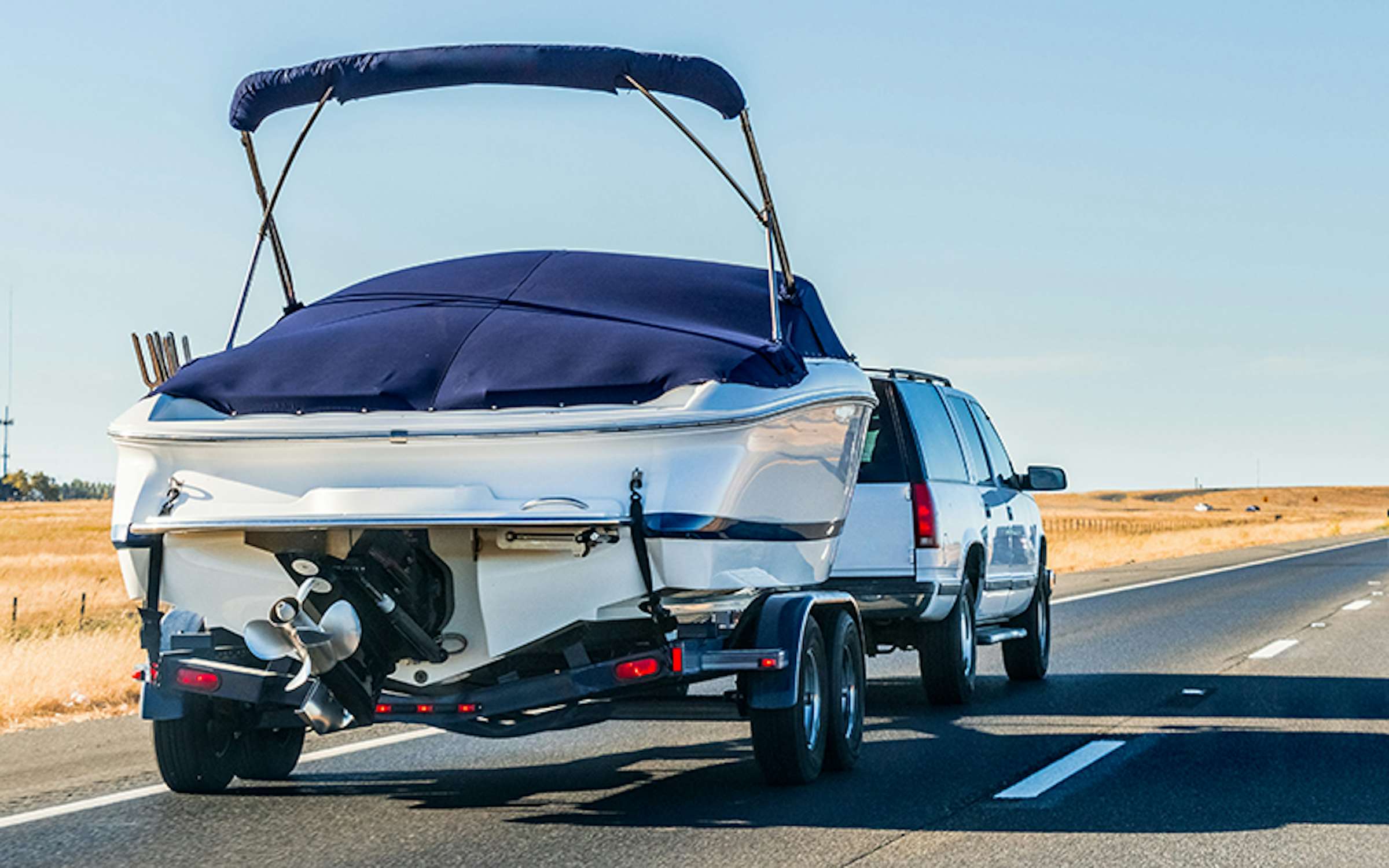
Towing a boat safely
Is there a dummies guide dedicated to towing a boat safely? Well, there is an article entitled The idiot’s guide to towing a boat safely, which opens with a photo of idiotic towing behaviour you would want to avoid (hint: start by attaching your boat to your trailer).
This Stuff article offers sound advice around things like, checking the health of your tow bar (ensure it’s not corroded), distributing weight on board the boat (it helps towing stability and safety if 60 percent of the weight is towards the front and the remainder to the rear), and being mindful of how to tackle corners (when you're turning a corner, the boat trailer will take a tighter arc than the vehicle). It also offers tips on reversing and suggests filling up with petrol before you hook up to prevent rolling up on a busy forecourt with a massive trailer in tow.
A big emphasis is placed on practicing to fine-tune your towing skills. Why wouldn’t you - for safety’s sake, and to avoid public humiliation (if that would embarrass you). If towing a boat isn’t something you do often, then don't be shy about going to a deserted carpark early in the morning and doing a bit of low-speed driving practice with the boat on the back. This is handy too in terms of familiarising yourself with the different feel of your vehicle's acceleration and braking while you're carrying that extra weight.
Boating NZ looks at towing regulations and the need for clarity and reform around that. Many boat/trailer rigs fall outside the weight/braking parameters specified in the regulations, the article points out. Part of the problem, says Tauranga’s GFAB Trailers owner Danny Sunkel, is that NZ’s towing regulations haven’t kept pace with the ever-evolving boating sector. Current regulations have outlived their use-by date.
A new boat purchase, he suggests, is a process that should include an honest discussion between the buyer, boat agent, tow vehicle agent, and the trailer manufacturer - to ensure that everyone understands what’s required in terms of a safe and compliant towing set-up.
He also argues that the need for a robust regulatory framework around towing is underscored by the increased distances boats are being towed.
“It’s changed significantly. Game fishing, for example, is now an all-year sport. Anglers are not only towing their boats more often but also further, right across the country, as they follow the fish. We have customers who rack up 30,000km a year” say Danny.
Aaron Mortimer - owner of Mariner Insurance would also welcome greater clarity around towing regulations and, like many others believes our current regulations have outlived their use-by date.
“Boats and vehicles have changed so much over the last decade - particularly the big trailer boats - the legislation is no longer fit-for-purpose.” He too thinks “an in-depth, formal consultation” between vehicle, trailer, and boat manufacturers would be a very good idea.
Aaron says he has never given (and never will) a client advice about an appropriate towing set-up as he is not a legal expert.
“People need to do their own research. If we get queries of this nature, we always refer the client to the New Zealand Transport Agency (NZTA) for clarification about towing parameters, braking, and licensing.”
The Boating NZ article includes NZTA recommendations on how much your vehicle can tow. As a guide, NZTA recommends that the laden weight of an unbraked trailer should not exceed three-quarters of the unladen weight of the towing vehicle - and then only if the towing vehicle’s brakes and tyres are in excellent condition.
Getting the right vehicle to tow your boat is a top priority according to a Boats.co.nz article - horsepower is essential to cover the weight of whatever you are towing.
This source of information also advises taking time to practice if need be and emphasises that a tow bar should be fitted by a professional, as should the electrics.
The article includes a long list of bullet points under the “Make sure it’s safe” heading. These pointers include the following:
- When launching your boat remember that park and hand brakes only work on the rear wheels whereas the foot brake controls act on all four wheels
- Ensure that 5% to 7% of the total tow weight is on the tongue of the trailer, otherwise handling will be affected otherwise and fishtailing may also occur
- If your trailer has brakes (usually found on a trailer with a gross weight of 682 kgs and over) make sure they are working. If they are surge brakes check that the brake fluid reservoir is full.
- There is a risk of wheel bearing seizure if the trailer goes into cold water while still hot from the drive so don’t rush launching procedures as this gives them a chance to cool down
- Also, ensure all the trailer lights and brakes are working. Unplugging the lights before backing into the water can help save your bulbs, just make sure you plug them back in.
Those are merely five of many tips. Check out this article for more.
Looking for the right cover on the water in New Zealand in 2022?
No matter what your plans are on the water in 2022, Mariner Insurance is here to support you. We have been offering Kiwis specialist marine insurance in New Zealand for over a decade with cover for all types of boats and watercraft. Just talk to us about what you’re doing on the water, and we can tailor one of our insurance policies to fit.